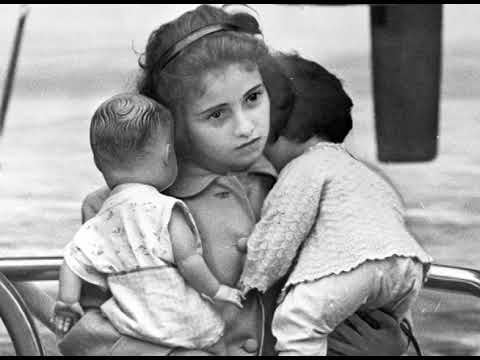
Waiting for Snow in Havana
It’s the largest exodus of unaccompanied minors in history. Contributor MATTHEW FLACKS chats with Yale Professor Carlos Eire about the Cuban Revolution and Operation Peter Pan.

Operation Peter Pan
Memories are etched in our psyche. They may be buried, lapsed and interred, or might be crisp, yearning and wistful. However accessible, in the end they are codifying. The wallpaper in my kitchen circa 1982 is encrypted in my animus – the grubby lattice of flora from the 1970s has unseated me for over thirty years. And it seems I was lucky. For I was spared the debilitating mental tattoo of enforced estrangement, political exile, and social dereliction. Not so for Carlos Eire. The historian’s award-winning memoir Waiting For Snow in Havana is a poignant autobiography about growing up during Cuba’s Revolution, and his subsequent exodus to Miami under ‘Operation Peter Pan’. Now a professor at Yale University, he has come a long way. And not just in metric distance. Over 14,000 Children we’re Extradited from Cuba to the United States Yes, Eire's Cuba was one of privilege, which makes his book ever the more compelling. He grew up in a wealthy part of Havana, the son of a judge under the incrementally brutal Batista presidency. Contrary to popular belief, the country was relatively libertarian and autonomous - it had the second largest middle-class population of all of Latin America in 1958, a literacy rate of 78% and a sturdy health system. So what of the perceptions of Cuba's current meritorious society amongst the chattering classes of the free world? Eire explains that the communist education system is one of indoctrination – students must show “revolutionary” behaviour or learning stops at sixteen. The public health state takes a two-tiered approach – one for party members and another for everyone else – an “awful” structure, he says. Many of his family members have died from preventable and treatable illnesses in the country. Press freedom under Batista was buoyant in 1958, Cuba had more newspapers per capita than anywhere in Latin America. There are now no independent journalistic outlets to speak of. Fidel Castro’s aim was always to "flatten out" class distinction, and yet the hegemony with which he and his brother enjoy is absolute, liberty is marginalized, democratic elections non-existent.
Eire’s book paints not only an intricate portrait, but a complete landscape of his transitional homeland. Following the Elian Gonzalez affair of 2000, the author felt possessed to write about his Cuba in response to what he describes as the “hypocrisy of the Castro regime and its posturing.” Over 14,000 children have been extricated from their families since 1959, so why all the fuss forty years after the fall of democracy? Along with Eire, another 500,000 children and families left Cuba between 1959 and 1980 for its bete noire – the United States – many, like the author, from the middle classes. As with the working poor, they were squeezed, looted and silenced under the auspices of the free Revolution.
Mr Eire has been left plagued by the revolution. When Castro acceded to power, all property was nationalised, bank accounts seized and the economy began to unravel. In his book, the author describes empty store shelves, queues outside banks, rationing and dissolution within financial and societal structures. Scars that still last today – American Eire will never keep his bank account in the black for fear of seizure. The trauma of displacement and loss is passed from generation to generation and lasts long. So why does Cuba remain so romantic to those looking in and why do the revolutionary t-shirts of Castro and Che still adorn so many young and old liberal-minded people of the developed world?
Political tourists see her as the sultry siren of a bygone age – not the marrying type of course, but worthy of a clandestine affair nonetheless – just what you want from a mistress. A reverie. Mr Eire suggests that the country has become a “Jurassic Park” experience, a suspended animation of a country, which has an “apartheid” system which allows thrill-seekers access to tours, boats, hotels to all of which the natives are forbidden. Cell-phone costs and internet charges are all prohibitively out of reach for its own citizens, who earn an average of $20 per month. And yet the mansions, cars and quaint lifestyles of the party hierarchy are unbounding in their luxury. One for all and all for one.
Cuba has for years been applauded and admired for its vehement opposition to the bully boys of the US, and this has made it an alluring proposition for many historians and wayfarers, not to mention the masses of revolutionaries occupying Western student dorms. The Bay of Pigs, the missile crisis and the advent of communism all created unease and distrust between the two nations. Mr Eire believes that President Obama has sympathy with the ideology of redistribution hence the recent thawing of relations. As human rights discussions are "off the table", it may seem absurd to extend an olive branch to a country in which an autocratic military junta rules supreme, and where 8,410 dissidents were detained in 2014.
My kitchen wallpaper may be long gone but most certainly is not forgotten. Nostalgia is comforting but often facile, a rudderless ship sailing into the horizon with no beginning, middle or end. Just ask the Cuban exiles whose haunting memories are still at sea, an unending voyage destined to meet with one’s capsized entity. To those who remain on the island, the boat has run aground. The wealthy that flock to Cuba to gawp and wonder as they climb aboard the stricken vessel leave with the whimsical folly of an ogler lucky not to get caught. The Carlos Eires’ are given a glancing reminiscence, a passing fancy, like ships in the night. We must tweak our consciousness, and hope that Cuba sets sail once more. MATTHEW FLACKS
Archives








